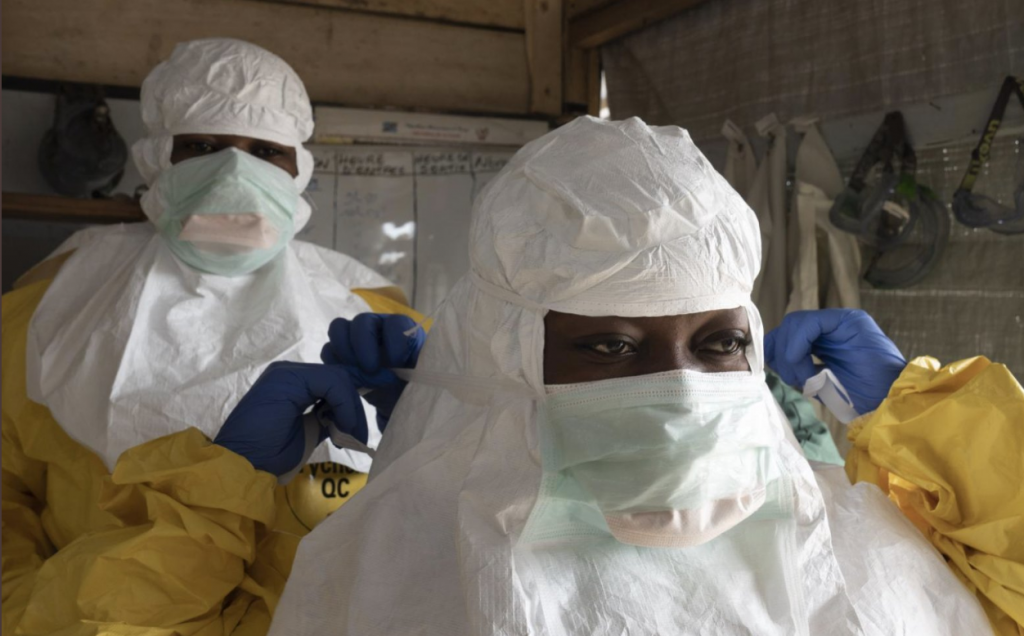
Ministry of Health Uganda has confirmed the death of another health worker, who passed away early in the morning on Wednesday October 5th bringing the total number of fatalities from the highly contagious virus to 10.
Margaret Nabisubi, aged 58, is the fourth health worker to die of Ebola, according to the health minister Dr Jane Ruth Aceng. A team of doctors contracted the virus when they treated the first confirmed patient, who required surgery, and has been admitted to the Fort Portal regional hospital.
A Tanzanian medical student, who was part of the team, died at the end of the week. Separately, a health assistant in Kagadi district died of the virus as well.
There was also a suspected Ebola death who is a midwife in Mubende district, she passed away before being tested.
“The late Margaret is the fourth health worker we have lost in the current Ebola outbreak,” the minister said on Twitter, following the deaths of a Tanzanian doctor, a health assistant and a midwife.
The latest death comes two weeks after the government declared an outbreak.
Health workers had expressed their concern about not having enough personal protective equipment in the first days of the epidemic.
Official figures show that there have been 43 confirmed cases since the outbreak was announced two weeks ago, and ten of them have died.
Health officials said they have traced more than 800 people suspected of having been in contact with those who have been infected with the disease.
Since the initial outbreak was discovered in the central district of Mubende, infections have been found in Kassanda, Kyegegwa and Kagadi.
But President Yoweri Museveni has vowed not to impose any lockdowns to tackle the disease, saying last week that there was “no need for anxiety”.
Museveni said some 19 others classified as probable Ebola cases had also died, but said they were buried before they could be tested for infection.
Ebola is an often-fatal viral haemorrhagic fever named after a river in Democratic Republic of Congo (DRC) where it was discovered in 1976.
Human transmission is through bodily fluids, with the main symptoms being fever, vomiting, bleeding and diarrhoea.
Outbreaks are difficult to contain, especially in urban environments.
People who are infected do not become contagious until symptoms appear, which is after an incubation period of between two and 21 days.
There is currently no licensed medication to prevent or treat Ebola, although a range of experimental drugs are in development.
Uganda, which shares a porous border with the DRC, has experienced several Ebola outbreaks, most recently in 2019 when at least five people died.
The DRC last week declared an end to an Ebola virus outbreak that emerged in eastern North Kivu province six weeks ago.
The worst epidemic in West Africa between 2013 and 2016 killed more than 11,300 alone. The DRC has had more than a dozen epidemics, the deadliest killing 2,280 people in 2020.






